From 'A Star Is Born' to 'The Predator': Hits and misses from the 2018 Toronto International Film Festival

The curtain falls on the Toronto International Film Festival this weekend, but the fall movie season is just getting started. TIFF’s 2018 slate was jam-packed with a typically strong mixture of blockbusters-in-waiting, awards contenders, and cult fare. Yahoo Entertainment took part in the festival festivities, which included early peeks at big movies like A Star Is Born, First Man, and Widows. Here’s what our time in Toronto taught us about the season to come. — Ethan Alter and Kevin Polowy
Be hyped … be very hyped
The buzz surrounding Bradley Cooper’s directorial debut, A Star Is Born, has been building since March, when both Sean Penn and Barbra Streisand (who starred in the 1976 version of the oft-remade story) separately sang their praises of the film. Turns out that Babs and Sean weren’t blowing smoke; A Star Is Born wowed audiences at its world premiere at the Venice Film Festival and met with an equally effusive reaction days later in Toronto. The key to the movie’s success is its aching intimacy, not just in the love story between Cooper’s fading singer and Lady Gaga’s rising star but also in the copious musical numbers, where the camera remains laser-focused on the performers’ faces and treats the audience as a distant spectator.

Speaking of heavily hyped Venice favorites, Alfonso Cuarón’s semiautobiographical period piece, Roma, arrived in Canada with that festival’s top award, the Golden Lion, in its pocket and immediately demonstrated why it will be winning many more statues as awards season unfolds. Set in Mexico in the early 1970s and shot in sumptuous black and white, Roma deftly employs its visual grandeur in service of a deeply emotional story.
Finally, Damien Chazelle’s much-praised First Man is also packed with grand visuals, re-creating Neil Armstrong’s moon landing with the same exacting specificity the director brought to La La Land. We’re hyped to see all three of these movies again.

The push for more diversity is paying off
Hollywood’s onscreen diversity problem is going to take years to fix, but there were promising signs at TIFF that progress is being made. In If Beale Street Could Talk relatively unknown actress KiKi Layne proved a revelation as the soft-spoken Tish, a pregnant New Yorker tortured by the false imprisonment of her boyfriend (Stephan James, also excellent, and who also appeared in the TIFF television entry Homecoming). Hunger Games alum Amandla Stenberg is extraordinary in the police violence drama The Hate U Give, essentially playing a dual role in a film that details the code-switcher’s dilemma. Mexico City native Marina de Tavira could be primed for an Oscar nomination — and major Hollywood opportunities — after what’s sure to be a breakthrough role in Roma. Atlanta star Brian Tyree Henry continued to make strides into the film world, appearing in two of the best-received premieres, Beale Street and Widows, while the latter also featured a notable turn from stage actress Cynthia Erivo, who stands her ground opposite a fiery Viola Davis.
What they really want to do is sing
Lady Gaga goes from pop star to movie star in A Star Is Born, but a number of the films playing at the festival featured actresses making the opposite transition. Take Natalie Portman, who sings and dances to several Sia-penned songs in the Brady Corbett-directed feature Vox Lux, as Britney Spears-esque pop queen Celeste. (The movie was recently picked up by Neon — the distributor that acquired I, Tonya at TIFF last year and guided it to multiple Oscar nominations.) Divided into three chapters, the sure-to-be-controversial film depicts how public tragedy and personal trauma can be commercialized by pop culture and internalized by the people who produce that pop culture.
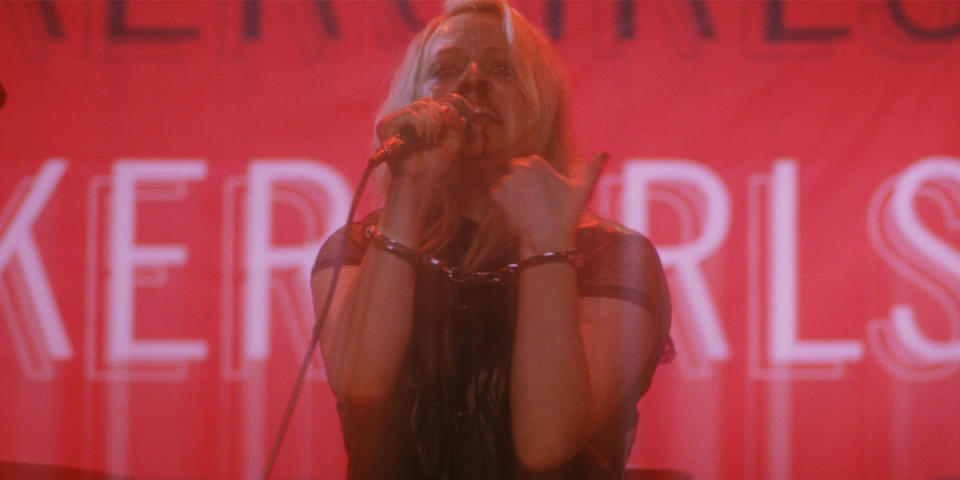
Trauma also plays a major role in Her Smell, Alex Ross Perry’s latest collaboration with Elisabeth Moss about punk rocker Becky Something, whose wild onstage image has consumed her off-stage life. In a ferocious performance that’s alternately terrifying and mesmerizing, Moss demonstrates she’s got the vocal chops to headline her own punk tour between seasons of The Handmaid’s Tale. Unlike Celeste and Becky, Rose-Lynn Harlan (Jessie Buckley) — the titular Glasgow-based country crooner of Wild Rose — has yet to achieve stardom (or notoriety), but TIFF audiences were definitely buzzing about Buckley’s performance and singing voice. Maybe Buckley, Moss, and Portman can form their own supergroup this awards season?
The auteurs are rising
The very concept of an “auteur” — a filmmaker so in command of his work that he’s considered “the author” of his movies — has long been debated. But if such a thing does exist, there was the work of at least four of them on display in Toronto. Barry Jenkins followed up his Oscar-winning sensation Moonlight (2016) with the equally as beautiful, equally as poetic, and equally as affecting James Baldwin adaptation If Beale Street Could Talk. Jenkins’s Envelopegate rival Damien Chazelle followed up 2016’s TIFF buzz-winner La La Land with the technically stunning space-race drama First Man. Steve McQueen followed up the Academy Award- and TIFF-winning drama 12 Years a Slave (2013) with the more commercial but nonetheless riveting female-led heist thriller Widows. And McQueen’s 2014 Oscars competitor Alfonso Cuarón followed up his own acclaimed astronaut thriller Gravity (2013) with the raved-about Roma. Add first-timer Bradley Cooper (no, we’re not calling him an auteur … yet) to the mix for A Star Is Born and the Oscar race might already be solidified.

Members only
TIFF’s opening-night film, Outlaw King, was mostly met by polite shrugs, but one element of David Mackenzie’s medieval drama did cause viewers to stand at attention: Star Chris Pine went the full monty. Demonstrating his commitment to 14th-century realism, Wonder Woman‘s leading man let it all hang out as Scottish freedom fighter Robert the Bruce, and called the overwhelmingly positive social media response to his full-frontal moment “pretty cool.” Not to be outdone, another comic-book-movie star — Age of Ultron‘s Aaron Taylor-Johnson — got graphic as well, stripping down to his birthday suit for a shower scene in the recovery drama A Million Little Pieces, adapted from the famously fictionalized “memoir” by James Frey. Since Taylor-Johnson co-wrote the script with the movie’s director (and his real-life spouse) Sam Taylor-Johnson, he’s got no one to blame for his impending Tumblr notoriety but himself.
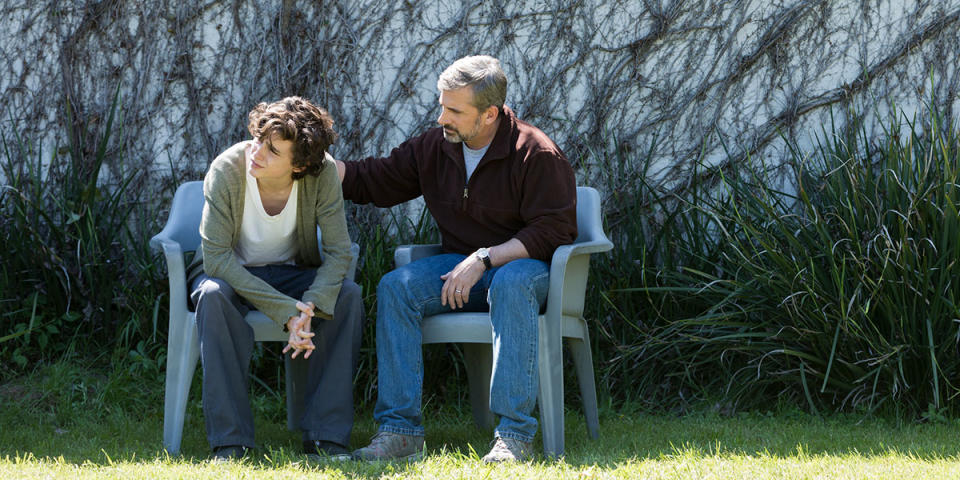
Prepare for a lot of drug- and alcohol-abuse dramas
One of the biggest conversations at TIFF concerned how similar the young drug addict stories Beautiful Boy and Ben Is Back are, and which was better. (For the record, our unofficial poll favored the latter.) The somber Beautiful Boy stars Steve Carell as a Northern California father who watches helplessly as his college-aged son (Timothée Chalamet) falls into a seemingly endless cycle of methamphetamine abuse, while the (slightly) lighter-at-times Ben Is Back stars Julia Roberts as a Westchester, N.Y., woman determined not to let her college-aged son (Lucas Hedges) fall back into a cycle of heroin abuse after he arrives home unexpectedly one Christmas night. Premiering only days later was A Million Little Pieces, which focuses more on the rehab treatment of Aaron Taylor-Johnson’s drug- and alcohol-abusing writer. Alcoholism also figured prominently into a pair of the festival’s most buzzed-about films, A Star Is Born (where Bradly Cooper simultaneously grooms and romances Lady Gaga, and self-destructs) and Can You Ever Forgive Me? (which mostly plays Melissa McCarthy’s booze-hounding for laughs, admittedly).
Give these reboots the boot
Toronto provided the launching pad for the would-be revivals of two dormant franchises: Predator and Halloween. Based on the mixed reaction to Shane Black’s The Predator and David Gordon Green’s Halloween, though, both series may revert back to being dormant. In the case of The Predator, the film itself was overshadowed by news that star Olivia Munn forced a last-minute re-edit after alerting 20th Century Fox to the presence of a registered sex offender in the movie — a brave action that was lauded on social media even though it resulted in her reportedly being “chastised” by her employers. If you think those prerelease headlines were bad, the movie proved to be pretty lousy as well, marred by underwhelming action and forced attempts at humor. Apparently Arnold Schwarzenegger was right to say, “I won’t be back” to the latest attempt to sequalize his 1987 action favorite.

Unlike her True Lies co-star, Jamie Lee Curtis did return for the latest Halloween, which functions as a direct continuation of John Carpenter’s 1978 original, ignoring every Michael Myers movie made since — including the previous Curtis-starring reboot Halloween: H20. Produced by horror expert Jason Blum, Halloween found some vocal fans among the TIFF audience and could parlay its brand awareness into a tidy box-office profit. But many viewers (us included) left its midnight premiere vaguely disappointed in its perfunctory storytelling and lack of big scares. Better luck next reboot, Mike.

Serious Melissa McCarthy is no joke
Comedic actors have been successfully pivoting into drama for years now (Bill Murray, Jim Carrey, Adam Sandler, etc.), so no surprise there. But what makes Melissa McCarthy‘s turn as an infamous forger Lee Israel so impressive and surprising in the unexpected crowdpleaser Can You Ever Forgive Me? is how she turns an off-putting, antisocial misanthrope (“I’m a 51-year-old woman who likes cats more than people,” she says at one point) into an antihero you’re rooting hard for by the final frame. McCarthy, who scored a super-rare Oscar nomination for a purely comedic role in 2012 for Bridesmaids, should be heading back to the show, as should her co-star Richard E. Grant, who bursts with deviant, fun-loving energy as Israel’s wayward accomplish Jack Hock.

Join the cult
The highlights of this year’s Midnight Madness lineup were a pair of future cult classics from returning festival favorites Peter Strickland (The Duke of Burgundy) and Gaspar Noé (Enter the Void). Imagine So You Think You Can Dance crossed with “The Masque of the Red Death,” and you’ve got the basic setup for Noé’s Climax, a hypnotic 96-minute freak-out that begins with a crew of nimble dancers (including The Mummy star Sofia Boutella) busting moves and ends with them busting one another’s heads after imbibing LSD-spiked punch. Strickland’s alternately hilarious and chilling In Fabric, meanwhile, is a fashionable satire about consumerism dressed up in ghost-story clothes. Expect both films to be on the midnight movie circuit for decades to come.

Is Lucas Hedges this year’s Timothée Chalamet?
Speaking of Lucas Hedges and Timothée Chalamet, you have to wonder if the fellow New York natives/Lady Bird co-stars/young Oscar nominees/friends (or faux rivals) ever had a conversation in which they realized they were working on such similar projects. The pair were already drawing comparisons all over the place. Here’s another: While the 22-year-old Chalamet was the toast of Toronto in 2017, with three acclaimed moves in the mix (Call Me by Your Name, Lady Bird, andHostiles), this year that distinction went to the 21-year-old Hedges. In addition to Ben Is Back, the Manchester by the Sea breakout also showed his remarkable range by playing a gentle young man forced into gay conversion therapy by his conservative parents (Russell Crowe and Nicole Kidman) in Boy Erased and as the bullying older brother of a precocious skateboarder in Jonah Hill’s directorial debut, Mid90s.
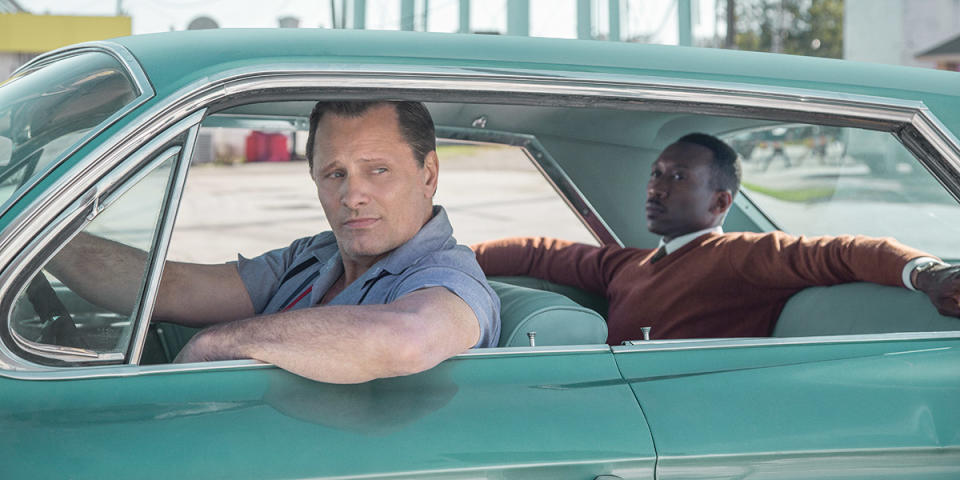
There’s something about Peter
“I’ve been in the business for 25 years, and this is the first time I’ve ever been at a film festival,” Peter Farrelly told the TIFF crowd moments before the premiere of his first film as a solo director, Green Book. Looks like the wait was worth it. A bighearted crowdpleaser in the vein of Hidden Figures and The Help, Green Book proved to be one of the surprise hits of the festival and is already stirring Oscar talk for stars Viggo Mortensen and Mahershala Ali. Set against the racially charged backdrop of the early ’60s, the movie recounts the true story of the friendship that blossomed between Italian-American tough guy Tony Vallelonga (Mortensen) and jazz pianist Don Shirley (Ali). Considering that Hidden Figures and The Help each banked nearly $170 million apiece, Green Book could become the first Farrelly feature to clear $200 million … and maybe bring him his first Best Director nomination to boot.

Robert Redford goes out with a bang
That bang is figurative, since Robert Redford never has to fire his titular weapon (spoiler alert) as the bank-robbing senior citizen in the David Lowery-directed The Old Man & the Gun. That’s part of his charm: He practically sweet-talks the tellers he holds up, and it’s why the real-life man he plays (Forrest Tucker) was still robbing banks into his 80s. It’s the perfect swan song for the effortlessly good Redford, who has announced he is retiring from acting at 82, and probably the gentlest, quietist heist movie we’ll ever see.
There’s a new batch of actors turned directors in town
Bradley Cooper made the most noise with his towering and chill-inducing musical drama A Star is Born, a gig he took on after his American Sniper helmer Clint Eastwood departed, but he had some company in the department of big-name actors making directorial debuts at TIFF. From a script he wrote with wife Zoe Kazan (based on the novel by Richard Ford), Paul Dano (Little Miss Sunshine, Love & Mercy) captured Wildlife, an affecting drama that initially premiered at Sundance and follows the disintegration of the relationship of a middle-class couple (Carey Mulligan and Jake Gyllenhaal) in 1960s Montana. Jonah Hill also chose a period setting for his first film behind the camera mid-’90s California in … well, Mid90s, a gritty coming-of-age drama about L.A. skate culture that drew a standing ovation from its Toronto audience.
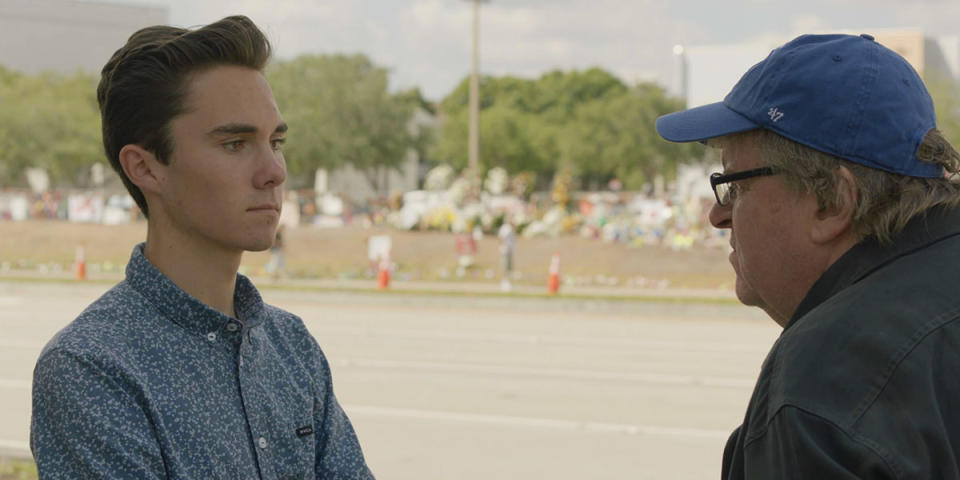
Michael Moore isn’t as liberal as you think he is
With his latest documentary, Fahrenheit 11/9, Michael Moore is on a mission to “save America” from the current inhabitant of the Oval Office. But just because he’s anti-Trump doesn’t necessarily mean that he’s pro-Democrat. In fact, the movie takes direct aim at the Democratic Party establishment, including two of its stalwarts, Barack Obama and Hillary Clinton. Moore criticizes the former president’s handling of the Flint water crisis and takes the former presidential candidate to task for her ties to Wall Street, as well as her mismanaged campaign. Don’t for a minute think that he’s about to start voting a straight Republican ticket, though. Moore sees hope for the Dems yet in rising political stars like Alexandria Ocasio-Cortez and Rashida Tlaib.
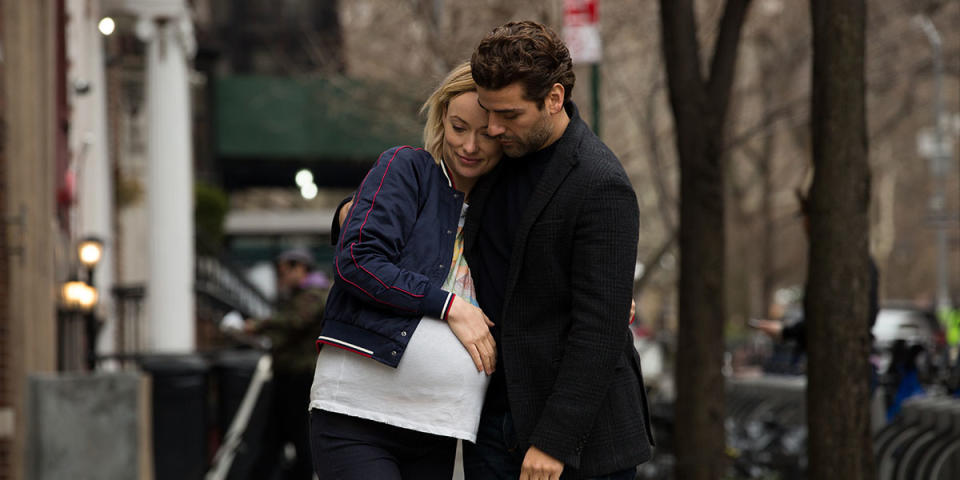
Is Life Itself this year’s The Book of Henry?
There was no bigger critical punching bag in 2017 than Colin Trevorrow’s misguided thriller The Book of Henry, which was set around a terminally boy who later instructs his mother how kill an abusive neighbor with very detailed instructions he leaves behind on recordings after his death. Of all the films that played at TIFF this year, few films inspired as much as ire as Life Itself, a bizarre and emotionally manipulative drama about, uh … love, loss, and interconnectivity (?) from master emotional manipulator/This Is Us creator Dan Fogelman. IndieWire called the film “demented, interconnected, and morbid.” Mashable referred to the movie as a “big sloppy pile of WTF.” The Film Stage labeled Life Itself an “unwieldy mess of a film.” The film currently stands at 8 percent approval rating on Rotten Tomatoes, which is actually significantly worse than Book of Henry‘s 22 percent score.
Read more from Yahoo Entertainment

 Yahoo Movies
Yahoo Movies 
